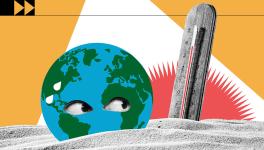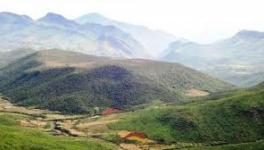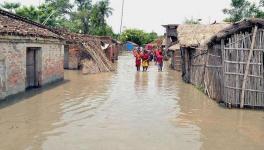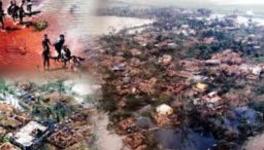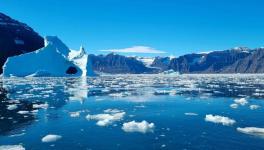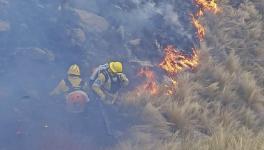Mingling of Species due to Climate Change Could Result in new Disease Outbreaks
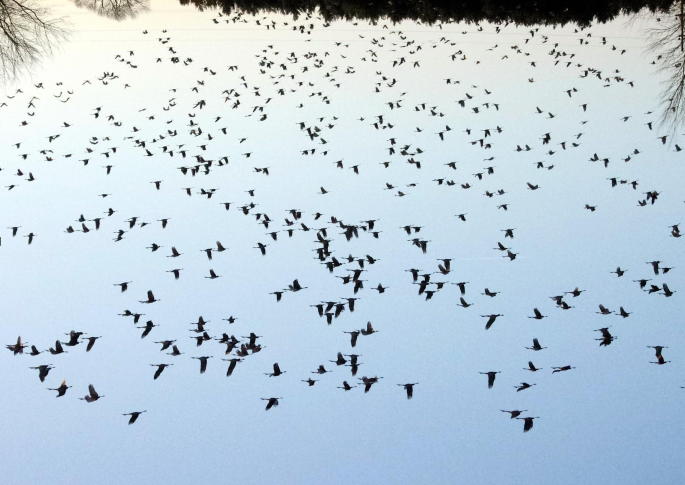
Most species on the planet have not mingled with one another as they reside in habitats conducive to their survival, a scenario seen since the origin of life on Earth. One wonders what would happen if, suddenly, many species change their habitats and start migrating to new geographical locations. That would lead to the mingling of species that have not yet been exposed to each other. This will also bring the exchange of microorganisms among the species. Can this lead to outbreaks of new diseases? Scientists have been cautioning that it is quite possible.
A new modelling study encompassing a wide variety of species, including mammals and humans, bolsters the observation made by scientists. The study was published in Nature on April 28. It highlights the impending danger for humans in facing outbreaks of new diseases.
By 2070, considering the scenario of most conservative warming, the study predicts that there will be about 15,000 new cross-species transmissions involving 3,000 mammalian species.
Colin Carlson, the lead author of the study and a global change biologist at Georgetown University, said, “Most of this pattern has probably been set in motion with the one degree Celsius of warming we’ve already experienced.”
Skylar Hopkins of North Carolina State University, who was not involved in the study, recognised increasing evidence of climate change’s role in spreading infectious diseases.
“They’ve given us a quantitative estimate of how big the risk is for viral sharing in wildlife and where it’s going to happen. But we don’t know what this means for human health,” Hopkins said.
The modelling study predicts the possibility of 21 million pairings among mammals, and among these, only 7% share a geographic range. This manifests the stunning reality that most of the species on Earth have not mingled with each other yet.
Carlson’s team attempted to decipher how the scenario might change in the future amidst climate change. The team’s models explored four climate change scenarios named Representation Concentration Pathways, ranging from two to four degree Celsius increases in temperature. They tried to find how this would change the habitats and mingling among the mammals. Hereafter, they explored which first encounters may lead to the exchanges of the virus. They found that 6% of the possible pairs can harbour viruses from the same families.
The study also revealed several other surprising findings. According to Carlson, he thought that climate change would drive species northward and southwards towards the poles. However, the models showed that intense mingling could occur earlier as species will tend to move towards habitats at higher or lower altitudes. The team cautioned that bats, which account for 20% of all mammals, would have a more profound impact because of their ability to fly.
“Bats have the hand on the steering wheel of how bad this is. And virus swapping will concentrate in high-elevation, species-rich ecosystems of Africa and Asia, not, as other models have suggested, at higher latitudes. Models let us talk about the nuances of the future,” Carlson said.
The researchers also carried out a case study on ‘Zaire Ebolavirus’. According to their prediction, this virus has 13 possible hosts of mammals. The team estimated that even the least dramatic climate change scenario could lead the virus to be involved in 2,000 first encounters between two species. And more so, in 100 such encounters, the virus can jump over from one species to the other. These jump over incidents could also cause Ebola infections among humans.
Carlson also cautions that climate change has already started the species mixing, and there is no way to revert it. However, the need of the hour is to look at how the risks for humans can be mitigated further.
Get the latest reports & analysis with people's perspective on Protests, movements & deep analytical videos, discussions of the current affairs in your Telegram app. Subscribe to NewsClick's Telegram channel & get Real-Time updates on stories, as they get published on our website.










